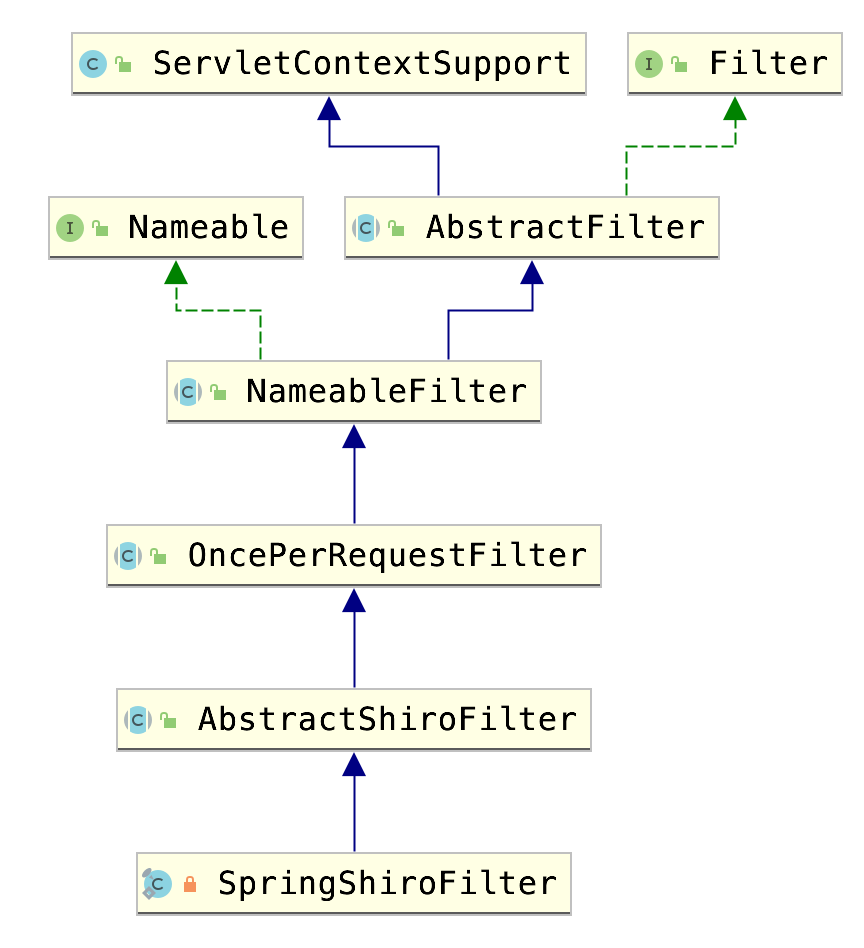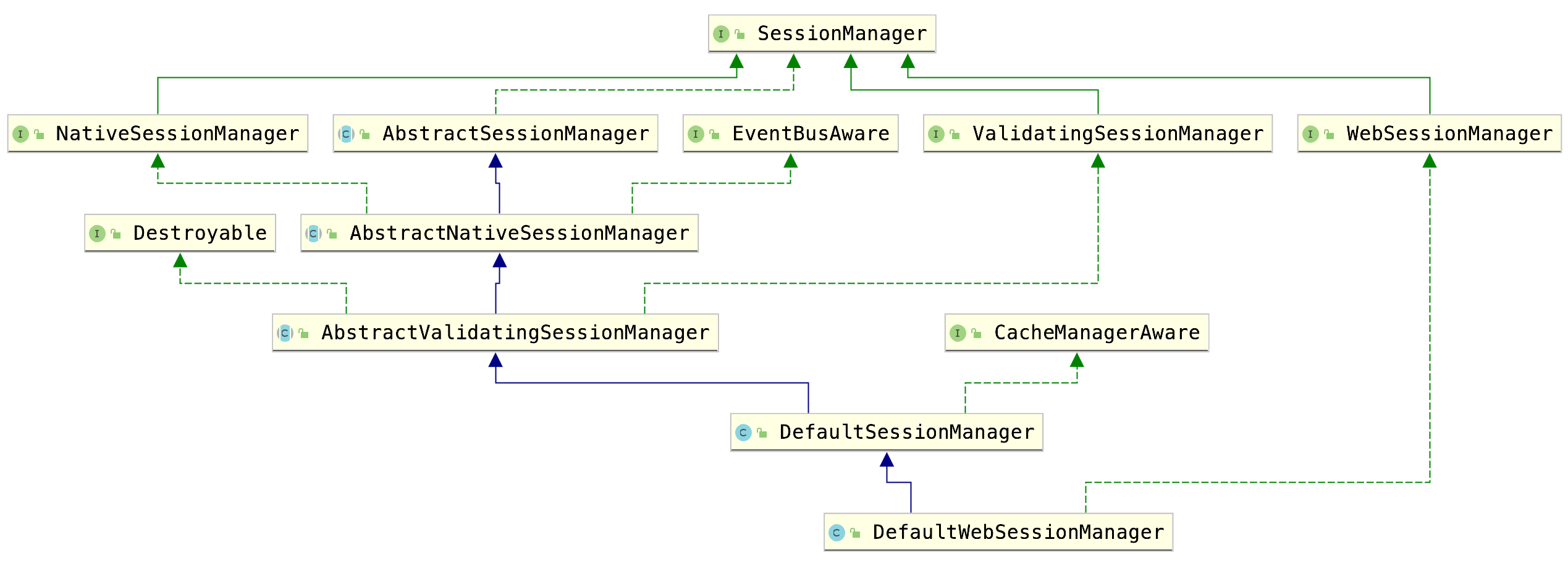Shiro中的Session管理
Shiro中Session有两个来源:
- 获取Servlet容器(如tomcat)的session。
- 使用自己的Session管理机制。
当我们在非web环境下(是的,Shiro可以在非web环境下身份验证),肯定是第二种。
在web环境下的话,就看SessionManager的具体类型了。
我们常用的安全管理器是DefaultWebSecurityManager.继承结构如下。

在它的父类SessionsSecurityManager中包含sessionManager属性。默认是DefaultSessionManager。
通过设置为DefaultWebSessionManager可以把session让shiro来控制。

具体分析如下:
我们都知道shiro通过filter来拦截更改请求。
filter的继承关系如下图:


OncePerRequestFilter会调用doFilter方法,这个方法会调用doFilterInternal。
AbstractShiroFilter子类实现了doFilterInternal这个方法。这个方法继续调用doFilterInternal ->prepareServletRequest -> wrapServletRequest。 wrapServletRequest这个方法,会根据域中securityManager的isHttpSessionMode方法来判断是否采用servlet容器的session。(true:使用servlet容器的session,false:采用自定义session)。
public abstract class AbstractShiroFilter extends OncePerRequestFilter {
protected ServletRequest wrapServletRequest(HttpServletRequest orig) {
return new ShiroHttpServletRequest(orig, getServletContext(), isHttpSessions());
}
//......
}public class ShiroHttpServletRequest extends HttpServletRequestWrapper {
public HttpSession getSession(boolean create) {
HttpSession httpSession;
if (isHttpSessions()) {
httpSession = super.getSession(false);
if (httpSession == null && create) {
//Shiro 1.2: assert that creation is enabled (SHIRO-266):
if (WebUtils._isSessionCreationEnabled(this)) {
httpSession = super.getSession(create);
} else {
throw newNoSessionCreationException();
}
}
} else {
boolean existing = getSubject().getSession(false) != null;
if (this.session == null || !existing) {
Session shiroSession = getSubject().getSession(create);
if (shiroSession != null) {
this.session = new ShiroHttpSession(shiroSession, this, this.servletContext);
if (!existing) {
setAttribute(REFERENCED_SESSION_IS_NEW, Boolean.TRUE);
}
} else if (this.session != null) {
this.session = null;
}
}
httpSession = this.session;
}
return httpSession;
}
//......
}可以看出,如果isHttpSessionMode结果为真,那么ShiroHttpServletRequest在getSession时会调用父类(HttpServletRequest)的结果,也就是servlet容器的结果。
但如果为假,则会new ShiroHttpSession来创建shiro自定义的session。
那么isHttpSessionMode的结果是怎么来的呢?
实现了这个方法的类是DefaultWebSessionManager,它的isHttpSessionMode方法中,会判断它类中的字段sessionManager。如果sessionManager是WebSessionManager的子类,同时它的isServletContainerSessions方法返回真,那么整个方法就返回真。
public class DefaultWebSecurityManager extends DefaultSecurityManager implements WebSecurityManager {
public boolean isHttpSessionMode() {
SessionManager sessionManager = getSessionManager();
return sessionManager instanceof WebSessionManager && ((WebSessionManager)sessionManager).isServletContainerSessions();
}
public SessionManager getSessionManager() {
return this.sessionManager;
}
//.....
}(还是挺绕的)
相关文章: